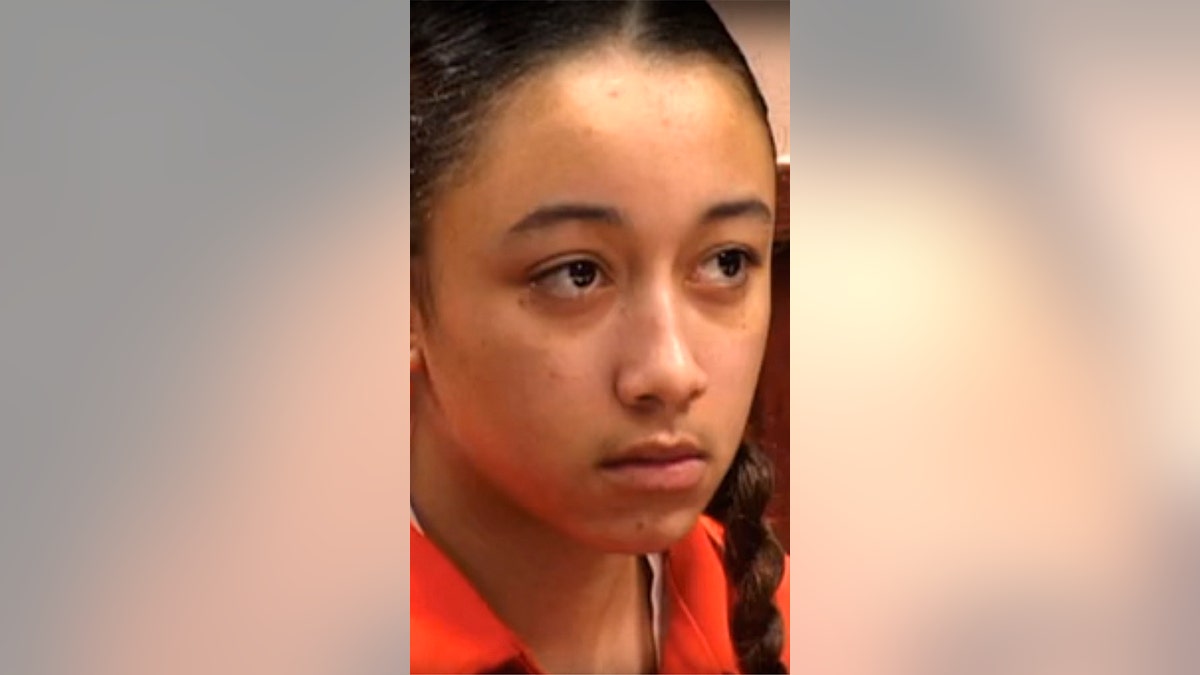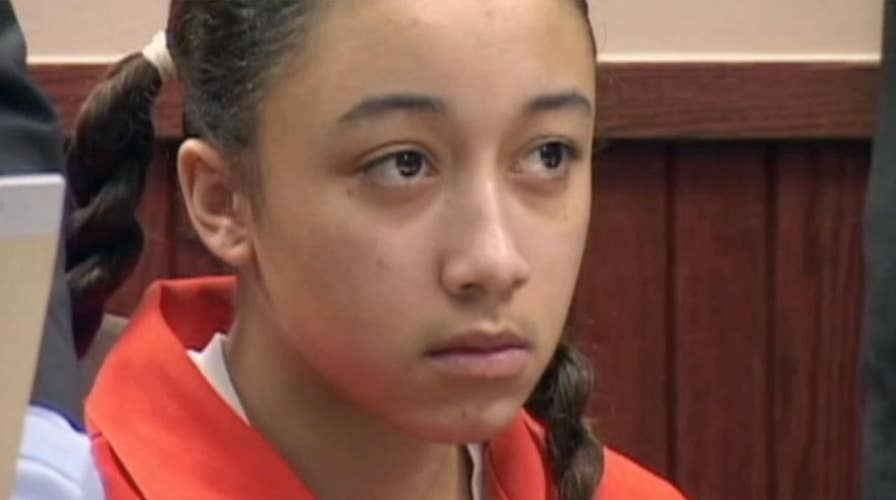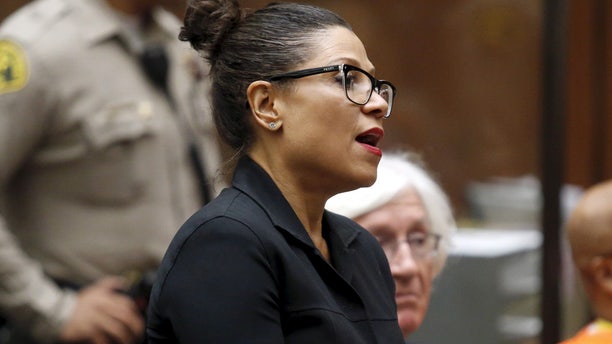Sex trafficking victim who killed captor finds celeb allies
Push to free Cyntoia Brown who was sentenced to life in prison for killing 43-year-old captor when she was 16 years old in 2004.
A high-powered Los Angeles attorney has joined the cadre of lawyers fighting to free Cyntoia Brown from the life sentence she received for shooting a man to death who had solicited her for sex when she was 16 years old.
Brown has been behind bars for nearly a decade in the 2004 murder of 43-year-old Johnny Michael Allen, who solicited Brown for sex from a pimp named "Kutthroat," who himself had repeatedly raped the teenage girl.
Brown isn't eligible for parole until she's 69.
Brown has said she believed Allen, who was a sharp shooter in the U.S. Army, was reaching for his gun when she shot him in the head while the pair was laying in bed. She also claimed she had rebuffed Allen's sexual advances.

Cyntoia Brown is serving a life sentence for the murder of 43-year-old Johnny Michael Allen. The incident happened when she was 16 years old.
Prosecutors, however, said Brown shot Allen in his sleep -- noting he was found face down with his hands under his head -- so she could rob him. Brown stole Allen's weapons and his money, and her juvenile criminal history and drug use were cited during the trial.
Recently, however, celebrities such as Rihanna and Kim Kardashian have posted on Instagram and Twitter about Brown’s case, pleading for what they see as justice, while petitions to set Brown free or re-try her have received more than 225,000 signatures. Rhiana wrote in a post “something is horribly wrong when the system enables these rapists and the victim is thrown away,” while Kardashian enlisted the help of Shawn Holley, who served on O.J. Simpson's defense team and has worked with high-profile clients such as Paris Hilton, Lindsay Lohan and Nicole Richie.
Additionally, during her 2006 trial, Brown's defense team brought up other mitigating factors that supporters are now shining a renewed light on, such as the money "Kutthroat" made by forcing Brown into prostitution and that Brown suffered from Fetal Alcohol Spectrum Disorder due to her mother's heavy drinking during pregnancy.
“[Cyntoia] was a victim of fetal alcohol spectrum disorder. She was on the tail end of three generations of women being abused. Her birth mother had been raped and Cyntoia was born from that rape,” filmmaker Dan Birman, who spent seven years studying Brown’s case for his 2011 film “Me Facing Life: Cyntoia’s Story,” told Fox News. “How does any kid survive that? We want to throw away our children? I think that’s a bad idea.”
Indeed, Birman’s PBS documentary, and the subsequent attention it brought to the case, helped to prompt a change in Tennessee’s laws regarding child sex trafficking. It's now impossible to be charged with prostitution in Tennessee if you’re under the age of 18.
SUPREME COURT: NO MORE LIFE WITHOUT PAROLE FOR JUVENILES
Still, the celebrity and activist posts using the hashtag #FreeCyntoiaBrown won’t be what determines Brown's fate. Tennessee’s Board of Parole Executive Clemency Unit is responsible for processing commutation, pardon and exoneration applications. The process begins with determining if a hearing is warranted and then making a recommendation to the governor.
"Parole is granted by the board of parole, not the governor, in accordance with statutory eligibility," Jennifer Donnals, press secretary for Tennessee Gov. Bill Haslam, told Fox News via email. "Requests for clemency must begin with an application to the board."
Birman believes the entire outcome of the case is against Supreme Court precedent, referencing recent decisions saying mandatory life sentences without parole should not apply to people convicted of murder as juveniles.
“The whole possibility that the nation can sentence a child to life imprisonment for a crime when they’re kids -- it goes against the Supreme Court,” Birman said. “Life in prison is a death sentence for many of these kids.”
Brown's attorney Charles Bone told NBC that if Brown were tried under current Tennessee law "she would most likely today be charged with second-degree murder at the most," which would make her eligible for parole almost immediately, based on time already served.
According to The Sentencing Project, a nonprofit that advocates against mass incarceration, approximately 2,100 individuals who were sentenced as juveniles could be released in the wake of the Supreme Court’s recent rulings. Twenty states and the District of Columbia have banned life sentences without the possibility of parole for juveniles. Three states, Pennsylvania, Michigan and Louisiana, account for about two-thirds of the juveniles currently serving life sentences without the chance of parole.
Now 28 years old, Brown recently completely her associate’s degree through Lipscomb University’s in-jail program and is working on her master’s. Although pictures released when she graduated showed her looking hopeful, she has acknowledged the difficulty of her plight.
“I’ve questioned out loud, ‘how am I going to do this, how am I supposed to do this, how I am going to spend the rest of my life in prison?’” Brown asks in Birman’s film.
Now that her case has received renewed nationwide attention, it remains to be seen if Brown will be freed.
“If she gets released, it will be because there was enough merit for a governor to look at it and say we need to do this differently," Birman said. "The things that were not considered are big: the social things, the chemical things, the brain things. I think she has a shot.”























